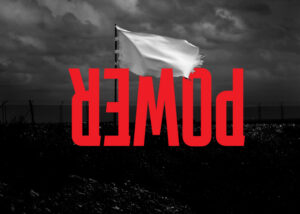What do we do with Psalm 137? While “Sing us one of your songs of Zion” (verse 3) rings in Christian minds as a sign of deep grief, the accompanying “Happy shall they be who take your little ones and dash them against the rock!” (verse 9) strikes most as exceedingly difficult.
Don E. Saliers, currently theologian-in-residence at Candler School of Theology in Atlanta, Ga., gave the 2018 Conrad Grebel University College Sawatzky Visiting Scholar Lecture on Feb. 15, speaking of the absence of these and other difficult words from Christian liturgy and the lectionary.
An accomplished theologian, liturgist and musician, Saliers led the audience in singing some difficult psalms and noted that when the church fails to sing them, it loses a focus on lament and on the reality of life. Fully two-thirds of the Psalms are of lament and complaint, he said. “How shall we pray to God with our hearts aching?” he asked, if the church skirts around these difficult words.
His focus was not on simple grief, but the lament of facing injustice in the world near at hand and far away. Speaking just after the killing of 17 students and staff at a Florida high school, and while wars of rape and pillage rage in many countries, he encouraged the audience to “wrestle with the psalms, again and again.”
“Scripture lies in wait for us,” was his frequent refrain, suggesting that if the church regularly used the Psalms, including those of lament and complaint, it would have more of a heart for the wounded and suffering within its walls and around the world.
He also noted, though, that while many psalms complain and lament, many of those same psalms contain the memory of God having been at work in the past. These verses of memory respond to the question, “Will I have hope again?” with a resounding “Yes!”
But, not all psalms include a resolution, he said, reminding the church that not all problems are resolved, putting to shame the insistence of the “prosperity gospel” preachers and their facile solutions and healings.
While some spiritualize the calls for vengeance in psalms 137 and 139, others, like hymnist John Bell of the Iona Community in Scotland, are using them to keep their hearts open to the suffering in the world.







Leave a Reply
You must be logged in to post a comment.